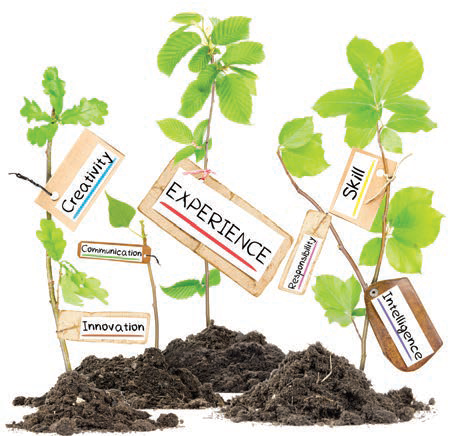With the sector reinvesting in training and coming together in recognition of the importance of practical experience, Donall Flanagan, lecturer in horticulture with Teagasc, clarifies the rules, regulations, and responsibilities of the Sustainable Use Directive and how it will impact your horticultural business
Whether it’s one day a week for a term or 15 weeks for the best part of a summer, students will always remember their horticulture placement. It’s something we have all had to do. It might have been our first introduction to the workplace or a new aspect to a sector you had already been immersed in. In either case, the student develops new skills and becomes a messenger with knowledge about the business they will share with their peers. To make the experience as positive as possible for the host and student, you need to spend a little time in planning for it – that small investment at the start will pay dividends once placement begins.
1. Goal setting:
Placement is primarily about developing proficiency in performing tasks; these skills are built up by practice. Before placement starts agree between the host and student on which key technical skills are to be practiced and set some realistic standards you would expect to be achievable over the time frame of the placement. Soft skills could be important for some; setting out expectations around timekeeping, cooperation, communication, initiative etc. are important. Whether training for the Olympics or developing a new skill, writing down the goal has been proven to increase success.
2. Work on strengths and inexperience:
For most hosts, they will be involved in a range of activities. To benefit the development of the student ask them what areas they need to work on and to benefit the business, what are their strengths. Match the skills where possible, try to apply the 80:20 rule if you can. Give a minimum of 20% of the time to the developing their new skills and 80% to practice.
3. Variety:
It keeps us all interested. It might be the busiest time of the year; potting, harvesting or whatever, with little choice but to get the work done. Remember this student is a messenger going back out to tell others about your industry. 4 weeks on a potting machine is nothing to anyone in the industry but to a student, it can be frustrating. The 80:20 rule could help shape some diversity in the training. Developing new skills is regarded as a great motivator; sometimes more so than money. Again have the conversation to find the common ground between you.
4. Interest:
Showing attention early on builds trust which is the foundation for good teamwork. Ask to see their CV, there will almost always be something unexpected there. Help the student to understand what they are doing is important, how it fits into the business or organisation. For example, it could be their attention to detail that builds the reputation for the business delivering a quality service and so on.
5. Support diary completion:
All Teagasc students complete a diary while on placement. They must keep day-to-day diaries of tasks and skills being developed. To get a better understanding of the industry they need to look at the business you are in and your input here is hugely beneficial. Agree when setting goals that you will contribute to this section and if you can’t commit due to schedules make one of your team responsible to mentor the student. ✽
  Telephone: 01-804 0204 Fax: 01-804 0212, Outlook number: 076-100 1171 Email: donall.flanagan@teagasc.ie |








